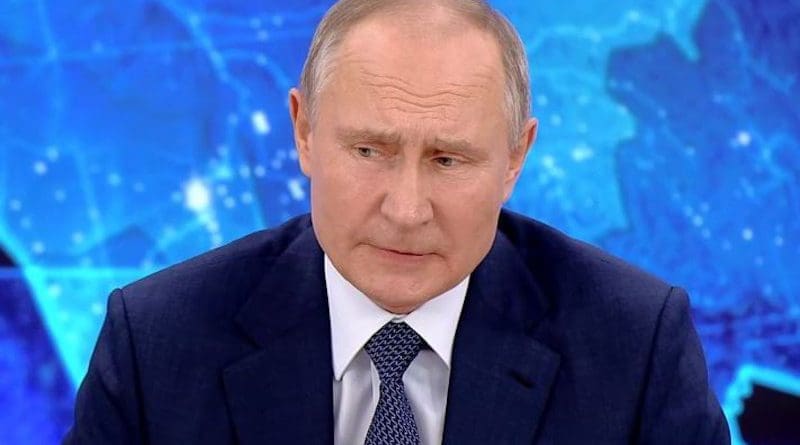Ukrainians And Russians ‘One People’ While Belarusians And Russians Are ‘Fraternal’ Peoples, Putin Says – OpEd
By Paul Goble
One of the consequences of not having a well-developed ideology with clearly defined terms is that leaders sometimes make what seem to be innocent remarks that carry within them the seeds of disaster; and as a result, their aides have to try to clean up what has happened before things get out of hand.
One of those situations arose today during Vladimir Putin’s “Direct Line” television show. At one point, he said that in his view, Ukrainians and Russians are “one people,” but at another place in his remarks, he said that Belarusians and Russians are “fraternal peoples” (nazaccent.ru/content/36043-putin-schitaet-russkih-i-ukraincev-edinym.html).
It is of course problematic in the extreme that Putin believes the Russians and Ukrainians are “one people,” thus implying that they should not have any dividing line between them. But it is worse from Moscow’s geopolitical position that he said the relationship between Russians and Belarusians was that of “fraternal peoples.”
In established Soviet and post-Soviet parlance, “fraternal” peoples are those with close ties, typically ideological. Thus, in the USSR, all the union republic nationalities were “fraternal,” but no one argued that they were “one people” in any ethnic sense. Drawing the distinction between Russians and Ukrainians and Russians and Belarusians distances the latter.
Not surprisingly, a Ukrainian journalist challenged Putin spokesman Dmitry Peskov on this point. Peskov’s response simultaneously let Putin off one hook but deepened the problems involved in the distinction that the Kremlin leader made as far as the Ukrainians are concerned (nazaccent.ru/content/36067-peskov-nazval-sinonimami-ponyatiya-edinyj-i.html and interfax.ru/russia/776041).
Peskov insisted that the status of being “one people” was a synonym for “fraternal” and that what Putin had said did not constitute a distinction between the two, although few Russians and fewer Russian specialists on what used to be called “the nationality question” would agree with his words on this point.
But then Peskov dug the hole his boss was in deeper. He declared to the Ukrainian journalist: “You and we are one people but with two different states. This is absolutely the reality in which we exist. After the disintegration of the USSR, we landed in two different states. Each state is sovereign, but the people are all the same one.”
On the one hand, this insistence on one people in two states is consistent with Putin’s longstanding argument; but on the other, Peskov’s defense of Ukrainian statehood is hardly in line with all the steps Putin has taken to undermine and even destroy that status.


Not sure if many of the Ukrainians feel it that way, for sure not those I am related , connected to.
After all, he hijacked their church too, which derived from what is now Ukraine.
Western Ukraine is populated by Polish people. After II World War the USSR took part of Polish land, and in exchange they gave North Eastern Province(Olsztyn). Poles are Catholics, and eastern Ukraine Orthodox. This is how I learned Polish history in Poland.